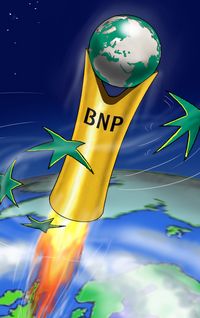Singing a different tune
Thoma Bravo’s decision to tap the private credit market for a US$2.3bn unitranche loan to support its purchase of Calypso Technology, and a successive cross-border merger to create fintech company Adenza, was an unusual move for a financing of this size and paved the way for more multi-billion dollar unitranche loans.
Owl Rock led the financing to support the acquisition of Calypso, a software provider to financial services firms, and its combination with peer AxiomSL, also owned by Thoma Bravo. Since Owl Rock had led the financing for Thoma Bravo’s 2020 acquisition of AxiomSL it was the natural choice to back the private equity firm’s purchase of Calypso.
Closing the financing required not only finalising the Calypso buyout, but also wrapping up the AxiomSL cross-border merger, making the deal particularly intricate.
The US$2.3bn financing showed the power direct lenders can bring and how PE firms can lean on private credit providers when eyeing a large buyout.
“None of these transactions happen on a one-off basis. The deal was the culmination of a continued partnership [of Thoma Bravo and Owl Rock],” said Daniel Hong, a vice-president at Owl Rock. “It’s a transaction that demonstrates why direct lenders provide a strong proposition for sponsors.”
The vast majority of US private credit deals involve businesses that are North American-centric entities, and this deal was rare because Adenza was expected to have a global presence.
That meant the lender faced unique decisions around currency exposure – such as currency hedges and the potential for a euro component – as it structured the loan, said Lukas Spiss, a managing director at Owl Rock.
Tax implications led Owl Rock to structure a loan comprised entirely of US dollars, with “sufficient flexibility” for currency hedges, Spiss said.
Thoma Bravo was also looking for “speed, certainty, and confidentiality”, which it found in the direct lending market where there are fewer parties involved than in the broadly syndicated market, he said.
“It was important to Thoma Bravo to not disrupt the AxiomSL business,” Spiss said.
“[The appeal of the transaction was] about the [market] leadership position of the two companies,” he said. “With the downside protection and top-line profile of these companies, this was a really attractive combination. We made the decision that these are top quartile, if not top 10% businesses, for us. We needed to lean in and win the deal.”
To see the digital version of this report, please click here
To purchase printed copies or a PDF of this report, please email leonie.welss@lseg.com


